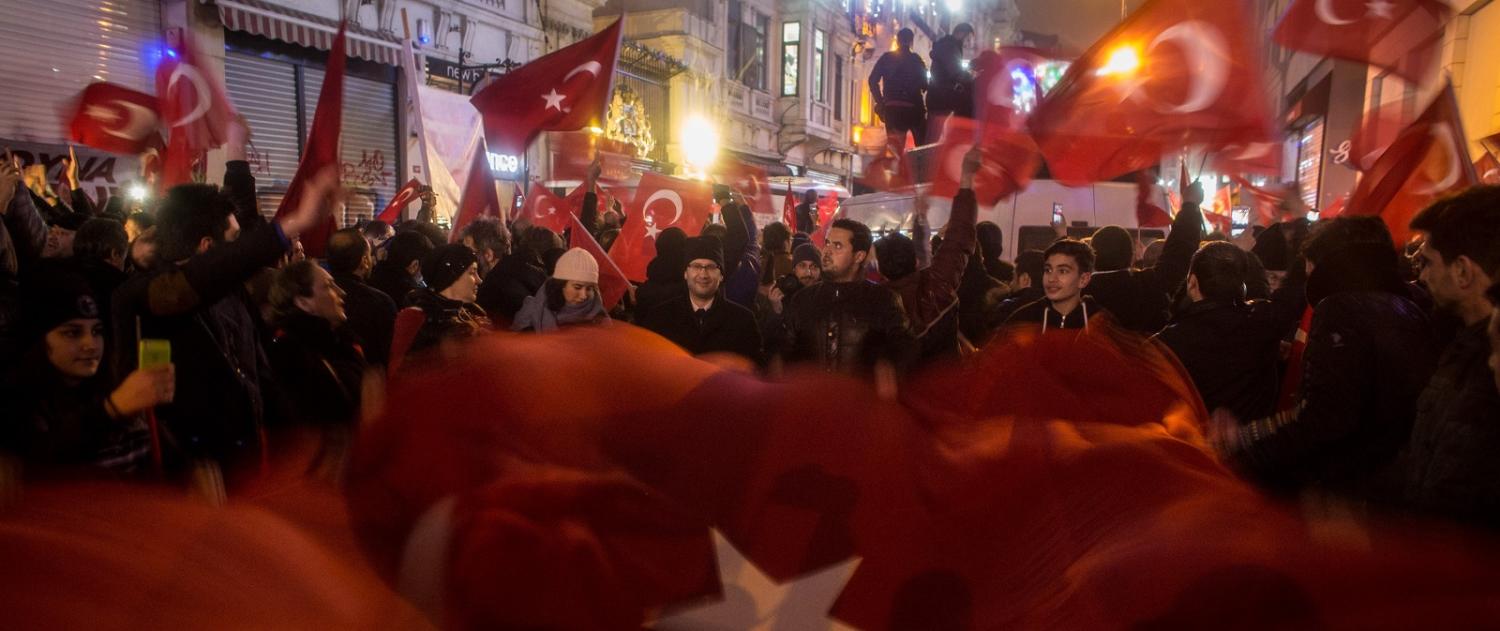The recent standoff between Turkey and several European countries shocked the world. For the first time in NATO and EU history, a member (or member candidate, in the case of the EU) state's foreign minister's plane was not allowed to land in EU territory (the Netherlands). Another Turkish government minister was declared persona non grata and escorted back to the German border by the Dutch police. These events were a huge blow to Turkey's international prestige and were indicative of strained relations that have the potential to become another security crisis for a Western liberal democratic bloc already reeling from the rise of extreme right, populism, Trumpism, Brexit, terrorism, refugee flows and Russian meddling in Western elections.
So what was behind the actions of the Dutch government and others?
The key common factor is that the Turkish ministers involved were not paying official visits to these countries as national representatives. Rather, they were campaigning as political party members for the 16 April referendum to increase the powers of the president, even though Turkish law bans political campaigning abroad. The Dutch, German, Austrian and Danish authorities who have not allowed, or sought to avoid, Turkish ministers from campaigning on their soil have good reasons to do so. These EU countries have substantial numbers of citizens of Turkish origin. Not all support the Justice and Development Party (AKP), Turkey's ruling party and the AKP and Turkey's President Recep Erdogan have a history of acting against their opponents, often declaring them to be enemies of Turkey.
Many Kurds among Turkey's diaspora resent the AKP government's bombing of Kurdish towns in Southeastern Turkey and imprisoning of leaders and deputies of the pro-Kurdish party, which happens to be the third largest party in Turkey. There are also many Alevis (Turkey's largest religious minority community, who account for 20% of Turkish Muslims) in the EU who are upset with the injustices and discrimination they have suffered at the hands of an AKP that has simply continued Kemalist pro-Sunni practices.
For the last few years, the Turkish government is believed to have conducted spying operations against its critics in Europe and elsewhere. In addition to other Turkish government operatives, consulates and civilians, Imams who are appointed by the Turkish government and serve in hundreds of mosques where Turkish diasporas exist have been asked to profile the AKP's critics and prepare lists of names. These dissidents are not given consular services by the Turkish authorities and face trouble when they visit Turkey. Many fear their relatives back in Turkey will be targeted. German authoriites are investigating imams who are accused of spying on suspected Fethullah Gülen supporters.
Western governments have been trying to stop these illegal practices that sow seeds of discord, enmity and hostility among the Turkish diaspora in their countries. These activities and the security concerns they have sparked are why the campaigning activities of Turkish government ministers were viewed as potential staging points that could have been used to rally hundreds or thousands of Turks behind such hate speech.
When those countries acted to prevent such campaigning, Erdogan attempted to turn the situation to his advantage by boosting the 'yes' vote in the upcoming referendum. About one fifth of his party's voters are not convinced by his planned changes to the constitution plans that would effectively create a Sultanate without checks and balances. Erdogan is thus attempting to securitise the issue and appeal to the emotions of the masses. The rhetoric of the President and his supporters goes like this: the new system will enable Turkey to grow stronger and become the leader of the Muslim World; Westerners (sometimes referred to as Crusaders) are jealous and are trying to prevent this new system from transpiring.
The facts are not important in this post-truth, Machiavellian power game. Erdogan used this strategy during the Gezi Park protests of 2013 (falsely claiming that protestors drank alcohol in the mosque, desecrated it and attacked headscarved women), and it has helped him not just explain away his corrupt practices but also increase his appeal to voters. When four of his ministers had to resign because of evidence gathered by the Turkish judiciary, he turned the facts upside down and presented this as a Gülenist judicial coup. This tactic shored up support then and he is trying to do the same again now. There are no more credible bogeymen left in Turkey: the government has closed 178 media outlets in five months, imprisoned 153 journalists, according to the International Press Institute, and sacked about 120,000 civil servants (including judges and prosecutors), thus Erdogan wants to position the EU as the new (imagined) enemy of the nation. In fact, an AKP deputy (Huseyin Kocabiyik) said in a television intereview that the crisis with the Netherlands had increased the referendum 'yes' vote by 2%. At a recent cabinet meeting several ministers also commented that the crisis was positive for the referendum outcome.
After the referendum
But ensuring the referendum goes the government's way may not be the only reason for demonising the EU. In a recent interview Erdogan said that after the referendum Turkey will continue its economic ties with the EU but will review its political ties. This has been understood to mean officially ending Turkey's EU candidacy process. This would mean that even the extremely mild pressure from the EU on human rights, torture and rule of law would be lifted.
It is also likely that Turkey would leave the Council of Europe, membership of which has seen Turkey forced to pay substantial fines levied by the European Court of Human Rights that the Turkish constitution recognises as a supranational court. After the recent purges, many more actions will be brought against Turkey in this court, some from individuals, some from companies once worth billions of dollars. Some of these, such as the Zaman newspaper (the biggest selling daily before it was shut down), have been totally destroyed, so it would be impossible to return them to their owners. Turkey's taxpayers would have to pay hefty compensation.
In an economy that is spiralling downwards with record numbers of unemployed and high inflation, Erdogan's voters, many of whom support him mainly due to the transformation of Turkey from relative poverty to a regional powerhouse, will not be happy if Turkey ends up paying billions of dollars to Erdogan's critics (or, in their vocabulary, traitors).

